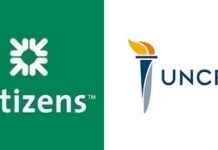Laurie-Marie Pisciotta is the executive director of the Mental Health Association of Rhode Island. The month of May is observed nationally as Mental Health Awareness Month, and with the COVID-19 pandemic ongoing, concerns about individuals’ mental well-being are rising.
Pisciotta spoke with Providence Business News about what challenges mental health providers are currently facing, how people can cope with the pandemic and what the association will offer this month.
PBN: What are some of the challenges that mental health providers are currently facing right now with the pandemic?
PISCIOTTA: Mental health providers have swiftly pivoted to meet the needs of the crisis. Many services are being done remotely, but there are still a number of essential staff who must work directly with clients in the community, at mental health centers and in residential group homes. Like their counterparts on the medical side, they too are experiencing shortages of personal protective equipment and are understandably afraid. Many staff – particularly those who are elderly, have compromised immune systems, or live with a vulnerable loved one – are staying home. This causes staffing shortages. In response, some mental health providers are letting staff have limited exposure at clinics by reporting for duty on a rotating schedule.
Not surprisingly, funding is also a major challenge, as the number of appointments and billable services has declined. Telemedicine appointments have increased, and some providers have had to invest in phones and technology to meet the demands.
Most insurance plans have relaxed telemedicine rules requiring sessions to have both audio and video. We hope that these changes will stay in effect after the crisis. Medicare has not relaxed their rules, causing many people without access to smartphones or computers with video cameras to go without care.
PBN: What are the best methods for individuals with mental health issues to help cope with the pandemic?
PISCIOTTA: There are many things we can do to care for our mental health.
First, create a wellness plan for yourself. Write down all the tools and resources you will rely on if anxiety becomes overwhelming. Your plan should include strategies for distraction, relaxation and coping.
Second, move your body every day. Go for a walk early in the morning when few are around. Some local yoga studios are livestreaming their classes. You can also find YouTube videos on qigong and fitness.
Third, maintain regular contact with friends and family.
Fourth, avoid numbing yourself with drugs or alcohol, as this will only make you feel worse afterwards.
Fifth, develop and stick to a daily routine to keep a sense of order in your life.
Lastly, if you are struggling, find a support buddy to check in with every day or join a virtual support group. Many therapists are offering telephone and video sessions, and most insurances will cover these sessions. You can call RIPIN at (401) 270-0101 if you need help understanding your plan’s covered benefits. If you are experiencing a crisis, you can call BH Link at (401) 414-LINK.
PBN: Is being constantly housebound a detriment to those with mental health issues?
PISCIOTTA: Isolation, being homebound and loneliness are stressful, particularly for the 1 in 5 who live with a diagnosable mental illness. Our support system feels increasingly distant as the weeks turn into months. We are home – often completely alone – with our illness.
Consider how someone in recovery from a substance use disorder or an eating disorder might be struggling with urges without the encouragement from a support group or therapist. For people who live with anxiety, depression, or any other mental health condition, the pandemic is heightening our symptoms.
When there is a crisis, it is more important than ever to stay connected to friends and family. If you know someone who lives with mental illness, connect with them regularly. Listen to them with nonjudgmental compassion. Offer empathy and support. Being there for them will make a profound difference in the way they experience this crisis.
PBN: Is there a worry that suicides could increase due to the crisis?
PISCIOTTA: Absolutely. COVID-19 is a mental health crisis as much as it is a medical emergency and financial disaster. Any mental health condition is going to be exacerbated by it. Mental health providers across the country have reported an increase in the number and duration of calls to warm lines (peer support) and hotlines.
Nationally, alcohol sales have surged 55%, and about 2 million guns were purchased in March, according to a New York Times analysis of federal data. That is a dangerous combination. Research also shows that unemployment is associated with increased anxiety, depression, low self-esteem and higher rates of substance use and suicide. According to a recent Kaiser Family Foundation brief, polling data demonstrates that “more than half of the people who lost income or employment reported negative mental health impacts from worry or stress over coronavirus.”
Isolation is also a risk factor for suicide, and older adults are at an even greater risk. In normal circumstances, suicide is the second-leading cause of death for young people ages 12 to 17. School closures pose a barrier to struggling adolescents’ access to treatment and support, thereby increasing their risk of suicide. Many people with substance use disorders have relapsed, and overdosing remains a risk.
Lastly, frontline medical workers are experiencing burnout and secondary trauma. The outlook is grim.
PBN: The association had some events scheduled for May canceled. What is being held in lieu of those events?
PISCIOTTA: The Mental Health Association of Rhode Island’s annual May Is Mental Health Month event at the Statehouse has been canceled. In lieu of that, the mental health community has come together to be of service to Rhode Islanders during these challenging times. Participating organizations and agencies include BH Link; the R.I. Department of Behavioral Health, Developmental Disabilities, and Hospitals; CODAC [Behavioral Healthcare]; the R.I. Department of Children, Youth and Families; Newport Mental Health; Interfaith Counseling Center; Community Care Alliance; Thrive Behavioral Health; Endless Beautiful; and many more.
We are collectively offering at least one virtual event/group, resource, fun distraction, or nugget of inspiration every day in the month of May. To receive these free resources, like and follow our Facebook pages. The Mental Health Association will offer eight free virtual workshops with experts speaking on topics [such as] best practices for getting a good night’s sleep, coping skills, disordered eating during COVID-19, yoga, expressive arts, homeschooling tips, and depression and anxiety. To see the full list of events, visit mhari.org. Please sign up for our workshops and connect with others who are stuck at home. We can be alone, together.
James Bessette is the PBN special projects editor, and also covers the nonprofit and education sectors. You may reach him at Bessette@PBN.com. You may also follow him on Twitter at @James_Bessette.













